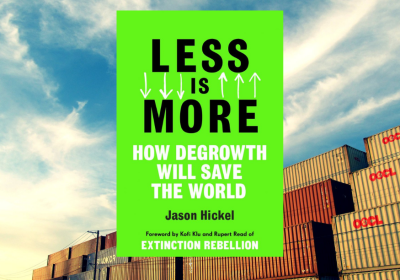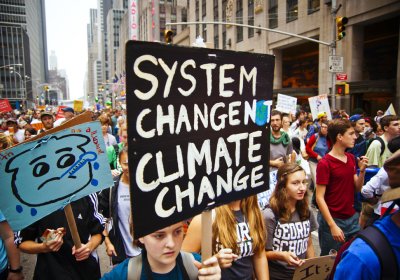In Less is More, Jason Hickel has written a readable book that seeks to promote hope rather than doom in the era of the Anthropocene or, more appropriately, the Capitolocene, writes Hans Baer.
Anthropocene
Two decades ago, barely anyone called themselves an ecosocialist. Yet today the term is widespread on the left.
This comes from an awareness that any viable alternative to capitalism must do away with the current destructive relationship between human society and the wider natural world. It also stems from a recognition that too many socialists in the 20th century failed to take environmental issues seriously.
Here are some surprising facts about humans’ effect on planet Earth. We have made enough concrete to create an exact replica of Earth 2mm thick. We have produced enough plastic to wrap Earth in clingfilm. We are creating "technofossils”, a new term for congealed human-made materials — plastics and concretes — that will be around for tens of millions of years.
 Ian Angus at global launch of ‘Facing the Anthropocene: Fossil Capitalism and the Crisis of the Earth System’. Sydney, May 13.
Ian Angus at global launch of ‘Facing the Anthropocene: Fossil Capitalism and the Crisis of the Earth System’. Sydney, May 13.
 “Potentially the most widespread and globally synchronous anthropogenic signal is the fallout from nuclear weapons testing.”
Repeatedly, over hundreds of thousands of years, glaciers expanded south and north from the polar regions, covering much of the Earth with ice sheets several kilometres deep.
“Potentially the most widespread and globally synchronous anthropogenic signal is the fallout from nuclear weapons testing.”
Repeatedly, over hundreds of thousands of years, glaciers expanded south and north from the polar regions, covering much of the Earth with ice sheets several kilometres deep.


